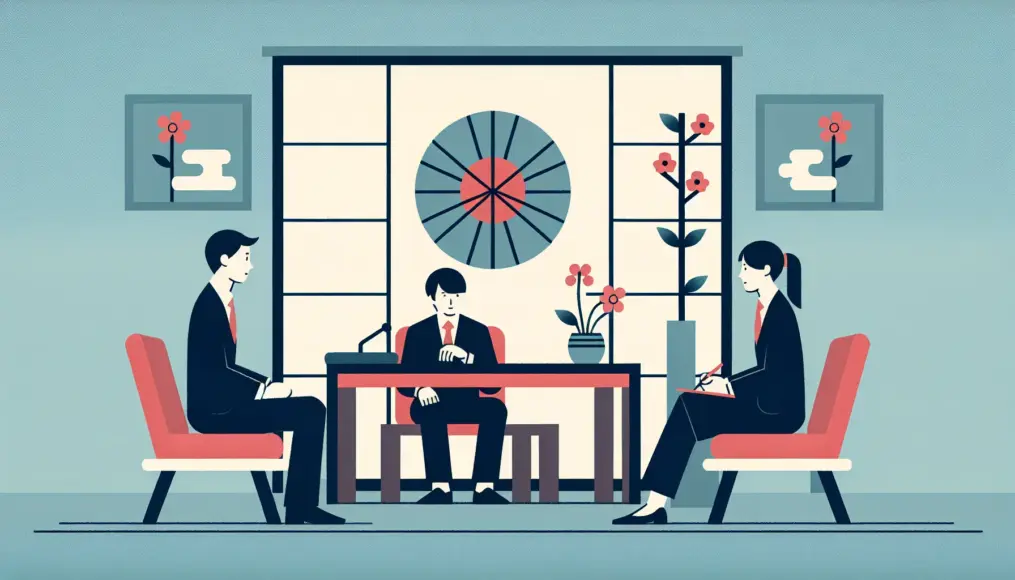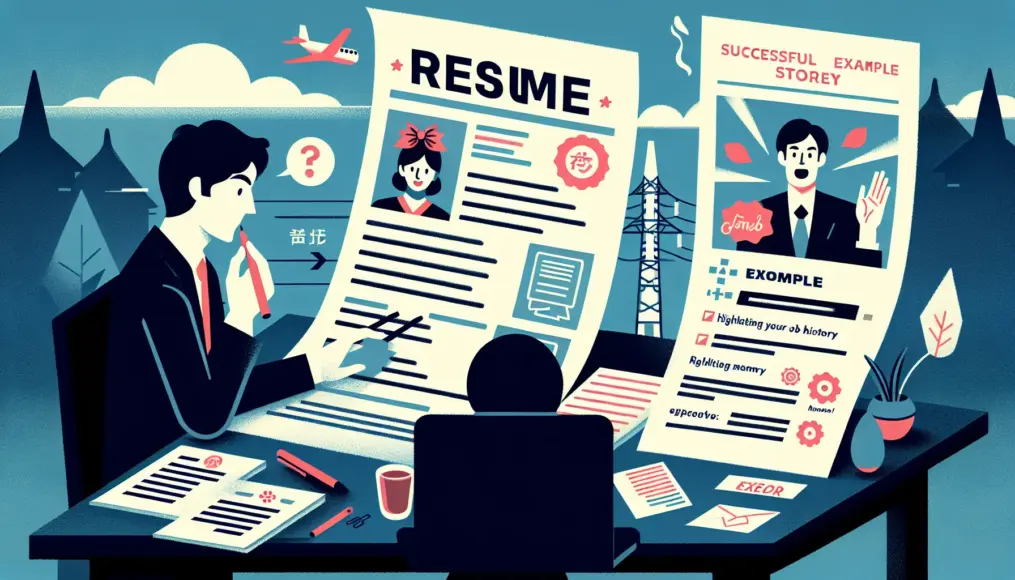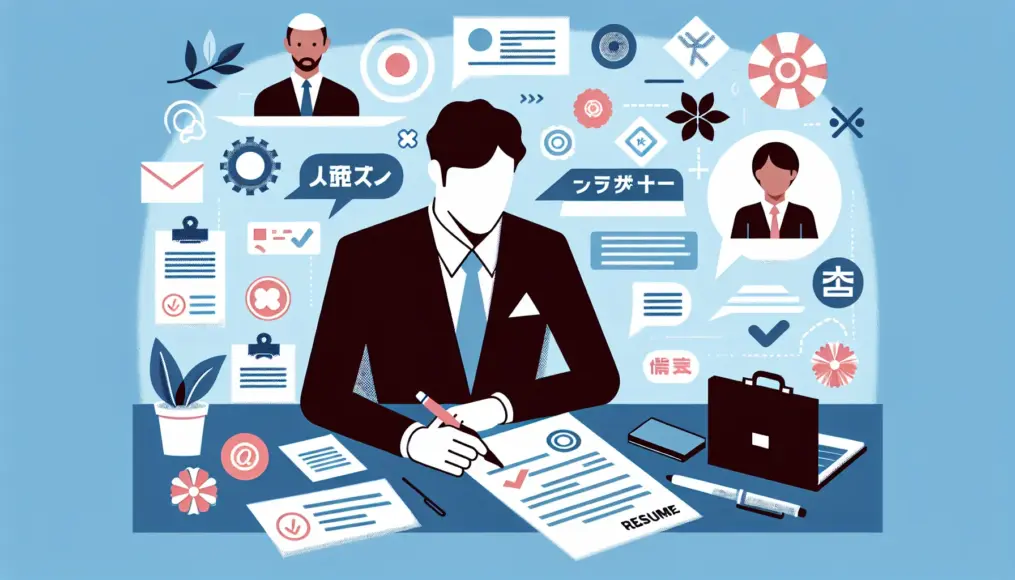The second interview is a prime opportunity to showcase your enthusiasm and interest in the position. It’s not just about impressing the interviewer; it’s also a chance to deepen your understanding of the company and the role. Adequate preparation is essential, as effectively utilizing reverse questions can help you stand out from other candidates and lead to a successful interview.
In this article, we’ll explore effective reverse questions you can ask during a second interview, along with strategies for leveraging these questions to promote yourself. We aim to provide useful insights into the significance of reverse questions and offer specific examples to aid in your interview preparation.
- Why Reverse Questions Matter in Job Interviews
- How to Craft Effective Reverse Questions with Examples
- Techniques for Self-Promotion through Reverse Questions
The Importance of Reverse Questions in Job Interviews
In a second interview, asking reverse questions plays a crucial role. It’s not just about answering the interviewer’s questions; it’s also an opportunity for you to show your interest and enthusiasm by asking your own questions. Through reverse questions, you can deepen your understanding of the company and the role, while also leaving a positive impression during the interview.
Reverse questions serve not only as a means to gather information but also as a platform to showcase your career aspirations and values. In this section, we’ll explain why reverse questions are essential and the benefits they can bring.
Why Are Reverse Questions Needed?
Reverse questions are vital because they provide companies with a way to gauge a candidate’s motivation and understanding. Often, time is allocated for reverse questions at the end of an interview to assess how interested the candidate is in the company. Additionally, candidates can use this opportunity to evaluate the company culture and workplace environment.
Moreover, asking reverse questions can foster lively communication with the interviewer, creating a more favorable impression. By expressing your thoughts through questions, you can bridge the gap between you and the interviewer, helping to build a trusting relationship.
- A way to confirm the company’s interests
- A method to demonstrate the candidate’s motivation and understanding
- A role in enhancing communication with the interviewer
Benefits of Reverse Questions
There are numerous advantages to asking reverse questions. First, they can help candidates find a workplace that aligns with their values and work style, allowing them to avoid potential mismatches.
Secondly, reverse questions provide a chance for self-promotion. By asking about topics that interest you, you can showcase your knowledge and perspectives, making a positive impression on the interviewer. Furthermore, reverse questions can highlight your desire for personal growth, serving as a method to earn positive evaluations.
While reverse questions play an important role in job interviews, their success hinges on preparing the right questions. If you want to learn more about effective reverse questioning techniques, check out Techniques for Impressive Reverse Questions in First Interviews!. This resource provides practical examples and highlights questions to avoid, giving you valuable insights for your interview preparation.
- Verify if the workplace environment suits you
- Provide opportunities for self-promotion
- Serve as a chance to demonstrate your desire for growth
How to Craft Effective Reverse Questions
To effectively ask reverse questions during an interview, thorough preparation is essential. When formulating your questions, base them on the company’s characteristics, industry trends, and information relevant to the job role. Reverse questions aren’t just about gathering information; they also serve as a way to convey your enthusiasm and interest. In this section, we’ll discuss key points for creating effective reverse questions and provide examples of specific questions you can use.
Key Points for Formulating Questions
There are several important aspects to consider when crafting effective reverse questions. First, ensure that your questions align with the company’s direction and culture. It’s also beneficial to think from the interviewer’s perspective, focusing on questions that they can easily answer. This approach fosters smoother communication and helps leave a positive impression.
One of the key strategies is to demonstrate your interest and understanding of the company. For example, inquiries related to the company’s vision, mission, or recent projects can be particularly impactful. By doing this, you not only express your interest but also highlight how you can contribute to the organization.
Additionally, specificity is crucial when formulating your questions. A question like “Can you tell me about the company’s growth strategy?” is less effective than “How does the recent project, [Project Name], contribute to the company’s growth?” The latter is more straightforward for the interviewer to respond to and leaves a lasting impression.
- Think of questions related to the company’s vision and projects.
- Ask specific questions while showing your interest.
- Aim for content that is easy for the interviewer to answer.
Specific Examples of Questions
Let’s look at some examples of reverse questions that can be particularly useful during a second interview. First, to gain insight into the company culture, you might ask, “What is the atmosphere like within your teams?” This question helps you understand the workplace environment.
Questions about career paths are also effective. Asking, “What skills or experiences do you think I would gain from this position?” demonstrates your eagerness for personal growth.
Through these questions, you can reinforce the importance of reverse questions while deepening your communication with the interviewer.
Reverse questions during a job interview present a fantastic opportunity to showcase your interest in the company. If you want to learn more about effective questioning techniques, check out Mastering Interview Questions for Career Success!. This article also delves into the importance of reverse questions and how to craft them effectively.
- “What is the atmosphere like within your teams?”
- “What skills or experiences will I gain from this position?”
- “How does the recent project, [Project Name], contribute to the company’s growth?”
How to Promote Yourself Through Reverse Questions
Reverse questions are not just a tool for gathering information; they also present a valuable opportunity to showcase yourself. During a second interview for a job change, using reverse questions to promote yourself allows you to directly communicate your strengths and values to the interviewer. In this section, we’ll explore tips for leveraging reverse questions for self-promotion, as well as techniques to leave a positive impression on your interviewer.
When utilizing reverse questions, it’s beneficial to tie your inquiries to your own experiences and skills. For instance, asking questions based on your past successes can help the interviewer visualize your capabilities. Additionally, the content of your questions can strategically reinforce your value, so thoughtful consideration is key.
Tips for Self-Promotion Through Reverse Questions
To effectively promote yourself with reverse questions, it’s crucial to ask questions related to your career and skills. For example, a question like, “Can you share the skills necessary for this position?” allows you to naturally weave in your experiences and past accomplishments in your response, thus promoting yourself effortlessly. By incorporating specific achievements or success stories, you can create a more compelling appeal.
Moreover, it’s important to creatively formulate your reverse questions to illustrate how you can contribute to the company. For instance, asking, “What are some success stories from this team?” enables you to reference your own successful experiences and think about how you might replicate that success within the organization.
- Ask questions related to your career and skills
- Incorporate specific achievements to promote yourself
- Formulate questions that showcase your potential contributions to the company
Techniques to Leave a Positive Impression on Interviewers
To make a good impression on interviewers, it’s essential to demonstrate respect and an enthusiastic attitude during your reverse questions. For example, when posing a question, strive to show interest in the interviewer’s opinions and experiences. Asking something like, “I’d love to hear about your projects; what aspects do you find particularly appealing?” can help build rapport with the interviewer.
Additionally, actively listening to the interviewer’s responses and following up with relevant questions can foster deeper communication. This approach not only highlights your genuine interest but also showcases your communication skills, leaving a lasting positive impression.
Reverse questions during a job interview are an excellent opportunity for self-promotion. If you’re interested in learning more effective reverse questioning techniques, be sure to check out Techniques to Stand Out in Final Interviews with Effective Reverse Questions. It’s packed with valuable insights to aid your interview preparation.
- Pose questions with respect
- Show interest in the other person’s opinions and follow up
- Engage in communication with an enthusiastic attitude
Conclusion
In a second job interview, asking reverse questions plays a crucial role. It allows you to demonstrate your interest in the company and effectively showcase your value, making thorough preparation essential. By thinking of specific questions, you can deepen your communication with the interviewer and leave a positive impression.
Moreover, using reverse questions as a way to promote yourself can help you convey your strengths and career plans effectively. Asking thought-provoking questions or incorporating your experiences can set you apart from other candidates. With these points in mind, be sure to actively utilize reverse questions in your next interview.
- Reverse questions are an important way to show your interest in the company
- Think of specific questions to enhance communication
- Use reverse questions as an opportunity for self-promotion
Prepare well for reverse questions in your upcoming interview, and aim for success. If you have any comments or questions, feel free to reach out!



Comment